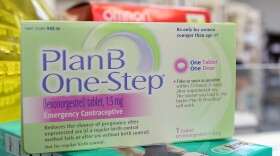Julie Rovner
-
European drug regulators are warning that the emergency contraceptive called Plan B does not work in women who weigh 176 pounds or more. The warning follows a September study showing an increased number of pregnancies in women who had taken Plan B.
-
After a rocky start, the HealthCare.gov website is supposed to be able to handle 50,000 simultaneous users by the end of the month. That figure would represent about double the site's current capacity. An expected surge in demand will present a new test.
-
If you advertise it, they will come. Sign-ups for Medicaid are brisk, even in states that haven't expanded their programs with an infusion of federal dollars. Experts call that the "woodwork effect" — getting the word out to people who were already eligible.
-
President Obama's proposal — designed to help reverse the recent cancellation of some health policies — seems to leave the decision up to insurance companies. But there are other decision-makers in the mix who are just as important: state regulators.
-
Letting people keep their old health insurance policies might solve a political problem, but it will create major headaches for the insurance industry, state regulators say. It also could drain healthy people from the risk pool for Affordable Care Act coverage, increasing rates there.
-
The Obama administration says just about 100,000 people managed to choose health plans through the federal and state health exchanges during their first month of the program. Critics say that shows the law is failing. But most analysts say the first month's numbers wouldn't have meant very much, even if the federal website had been working properly.
-
Just over 100,000 people managed to get signed up for health insurance through the state and federal health exchanges, the Obama administration reported. But barely a quarter of those — 26,794 — signed up through the faltering HealthCare.gov website.
-
Self-employed workers are some of the people who could benefit most from insurance under the Affordable Care Act, but figuring out how much coverage will cost can be tricky. Well, we've got answers for them, and also for people wondering about what happens if they don't have any insurance at all.
-
The rules require most health insurance plans to provide the same coverage for mental health and substance abuse treatment as they do for other types of ailments. Coverage also has expanded under the Affordable Care Act, but not everyone benefits.
-
An estimated 14 million families use these flexible spending accounts, or FSAs. Tied usually to employment at big companies, the accounts let people put aside money before taxes to help pay medical expenses insurance doesn't cover.







